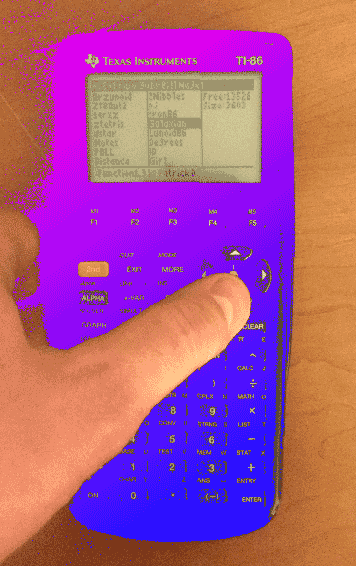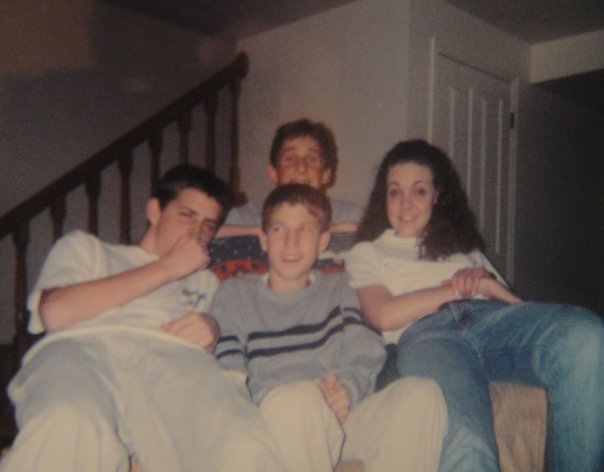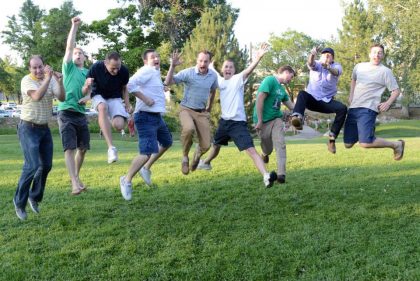Somewhere between Heman and Y2K, I got a TI-86 graphing calculator (aka “the Ladykiller”). I could make that thing do flips. People would come to me for my hacks. I became like the school Tetris dealer.

At one point, my friends and I started experimenting with programming on the darn thing. Talk about street cred. I would blow minds with my 1-bit graphic design, then we’d string together the logic and make some calculator magic. Well move over Shigeru Miyamoto, Dave’s in town.
Fast forward to 2016 when Josh and I started brainstorming a retro basketball game. Over a week or so, I did some early character design and Josh started programming. Check out these first concepts Josh put together in Unity…
Now after nearly two years of development, a bunch of market research, play testing, and even some talks with publishers, I feel like we’ve had a great experience making Basketball Classics. I won’t pretend to be an expert, but here are two thoughts that I would share about game design:
1- Focus on Fun
“We just need to make sure its fun to play at each step”. That’s what Josh said from the beginning. It might sound obvious, but it can be difficult in application. With all the mistakes we’ve made, it seems like we go wrong when we try to force an idea that doesn’t actually add to the gameplay. Whether it is some kind of artistic choice or just trying to pack in too many features, be careful to not lose sight of your objective. Sidenote: I think most people hate money making schemes (pay-to-win, in-app purchases, etc.) in games for just this reason. It takes away from the fun.
Also, I think it’s important to have fun as a developer. Creating our game has been so time intensive, it would really suck if the work sucked, ya know? There is no guarantee we’ll make any money at all, but I can say I’ve loved the process of creating.

2- Be First, Biggest, or Best
Mr. Lee, my legendary art teacher would say that in order to be successful as an artist, you have to either be the First, the Biggest, or the Best. That was a little hard to hear as I toiled away on my Red Hot Chili Peppers oil painting, but I often consider how that might be applied to game design.
As games get easier to make, the market gets more and more competitive, just like the world of books, art, and movies. If you don’t believe me, look up how many apps never get downloaded, or how Steam has essentially become the next App Store. Making a successful game as an indie developer is no slam dunk (and don’t think for a second that that’s the end of the puns).
So how do you stand out? As indie game developers, we’ve got all the freedom in the world. No one is telling us what can and can’t be done. That’s why I feel the best indie games are far and away the most innovative and impactful in the industry. Big companies can’t, or won’t make games that they consider risky or unmarketable. They’re going to stick to proven money makers.
Well, as an indie developer, you’re not going to compete with the technical advantages and brute force of the AAA companies. Meaning, you probably can’t make a better Call of Duty (and that’s me, dissing on a shooter). What you can do however, is come up with an all new game. And if it can be both original and well-made, then you’ll really be an All-Star!
…and I’m done.

-Dave
55378008